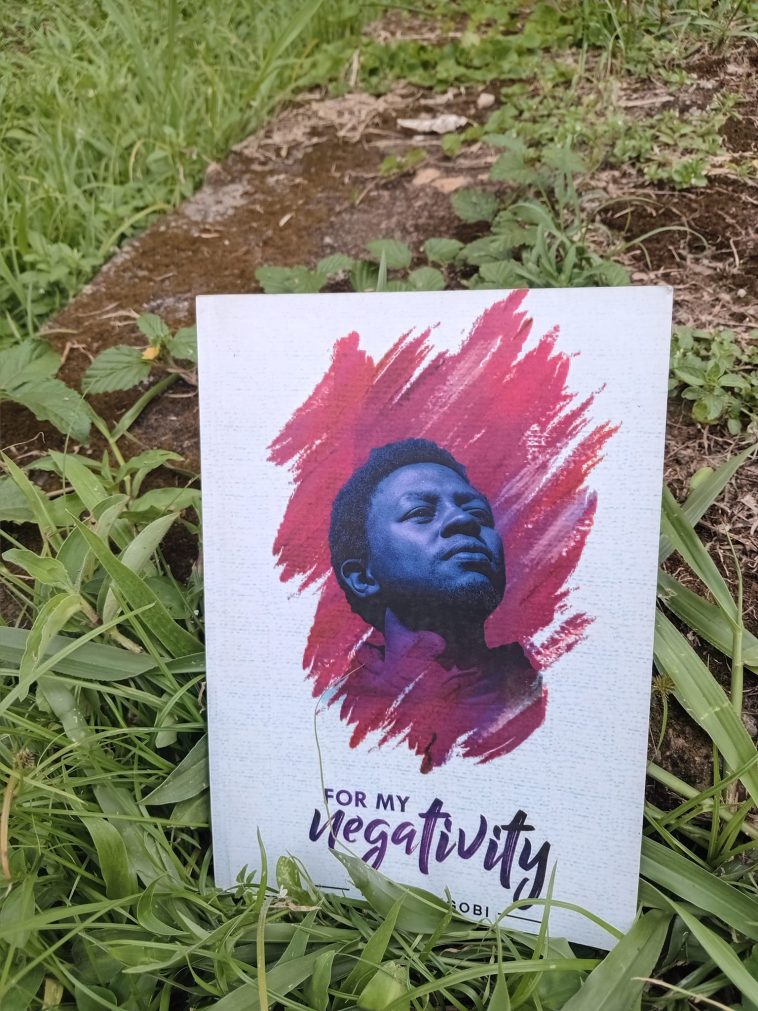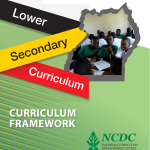On the 15th of June 2023, I met Kagayi at the national theatre; he sold to me his performance poetries (For My Negativity and No Speaking Vernacular). Extensively, we had a wonderful talk of about 45 minutes, discussing many things and the future of poetry in Uganda. One significant rhetoric he poked so hard about was that: Who is a poet? This is an augmented argument that has been in existence in our circles for quite a while. Every single blink, it hiccups again into different WhatsApp groups, as different individuals display spirited knowledge of “who is a poet?” This is something; I wish not to indulge myself for now because it is a conundrum. However, by the time I finish this review, we shall have understood who a poet is and what it takes to be a poet. I will elevate my witty annoyance in discussing a “trinity being” of Kagayi. Kagayi the Publisher; Kagayi the Artist; Kagayi the Writer.
1. KAGAYI THE PUBLISHER
On purchasing Kagayi’s two books. He asked me a peculiar question that set me into soft giggles. He asked: “Zziwa, What do you mean, you have never bought any of my books?” I then decided to explain a few things to make matters straight and to have an emotional balance of thoughts without offending him. I then replied that I have in fact bought your books Kagayi, I bought “Don’t Love Me in English” a book you yourself, published. The discourse went on further as we shared different thoughts about publishing and art with a juxtaposition of the local climate and the international scenes. He gave quite pertinent points; however, a few were more significant than the others, one of which were.
(1), writing is an elitist job. Where individuals eat, pay bills and have fun without trying so hard with life.
His narrative was centred on the argument of the writers in Europe, to whom the citizens think they almost do nothing but have better lives. However, this is not the case in a country like Uganda. Writers suffer and are sinking more into a pit of depression if not guided carefully about how brittle this job is. The argument of royalties and books will go on further for it has not started with us only. Our ancestors faced the same turbulent winds of chaos we are trying to debate. Many claim the climate was/ or is still the same. Nothing more or less. We are only dealing with different problems of “genZ.” Most of Kagayi’s published content is poetry for himself and other writers that come along under his wing of a publishing entity called “Kitara Nation”. This is a house he founded in the spirit of publishing for poets – I presume. This then stems the argument again. Who is a poet? Should a poet be published to be called a poet? How well should someone recognize himself or herself as a poet? Proof is a matter of fact; a poet must have published content, before introducing himself or herself as one. Kagayi is a published poet and a publisher of books. He sometimes recognizes himself as a bookprenuer – a person that invests money in books. However, from my reading of his two books, which were aforementioned, should a publisher publish himself or herself – how do you handle the biases in your own books?
(2), published Ugandan content, might not benefit the writers.
This I mean, when will you be recognized internationally or sell millions of copies to enjoy from the fruits of your own labour? The only time Ugandans recognize a Ugandan writer is when they get international mileage and accolades. A case of recognition is Jennifer Makumbi Nansubuga. Makumbi is recognized in her mother country (Uganda) not because of her witty pen-hand but because the whole of Europe recognizes her as the most complete Ugandan writer. Publish your poetry. Let the world judge.
2. KAGAYI THE ARTIST
I have watched Kagayi perform several times in theatre, or/ and at different poetry occasions or stages. This again, brings another important concern. Who is a poet? Should a poet be able to perform their content at different avenues or stages? How should they perform their content? When I was reading his “No Speaking in Vernacular”, I saw something irregular, which envisioned a nostalgic moment. I recall back then during my primary school, we used to wear “sacks and bones” when caught speaking vernacular.
The whole performance poem is a real masterpiece of a comic. I enjoyed each interval when the Headmaster of “John Speke High School” reminded the different students how Dambya said “GWE”. It is a real vivid imagery in all our schools. That is the exact portrayal of our teachers – we love them anyway. Perhaps, if it were not them, we would not be writing this colonialist language with ease. Nevertheless, why should you punish a child to the verge of suspending them from school because of speaking their mother tongue? Therefore, Kagayi as an artist has elaborated our societies. The societies that depress young children and set them as examples or as trophies of victory and control.

This book is the best book I have read from him so far. No filters, just the bold truth and comics. The usage of school jargons reminiscing the glory days of school. How fun it was after classes! The most used technique I enjoyed reading was Ug-lish – a fusion of English and Ugandan dialect, it blends with direct translation from our mother tongues. A mockery of the Master’s English. A victory that perhaps, children will run away from the fetters of colonial mindset. Pulling all the strings together, and tailoring the concerns of Kagayi the Artist. He exhibited a well-coordinated plot. He again asserted in his content that he is an artist, he has invented a performance poem for us to enjoy in theatre. At only Ugx. 10,000 purchase the book.
This second persona of Kagayi rings yet again the throbbing concern. Who is a poet? Kagayi is an artist that performs all his content. Should we believe for you to be recognized as a poet, you should be an artist? The availability to stress out your emotions on stage? During our 45 minutes discussions, he stressed yet a few concerns towards the art. There are individuals that perform this art on stage. I would mention a few names off my head; the likes of Sssebo Lule, Jason Ntaro, Wake the Poet et al. However, what signifies that you are an artist – an artist of poetry? We are seeing different individuals reciting people’s poetry on stage. What should we call this category of individuals? For whom, we love dearly because of their beautiful “voice-overs”. Do they qualify to be called poets?
3. KAGAYI THE WRITER
In all aspects of life. Kagayi is a manifestation and lives the talk. He is a writer. There is proof to these kinds of sentiments. A poet should be a writer. You cannot call yourself a poet without information that proves that you are a writer. However, who is a writer? Kagayi asked me a question while we were discussing who is a poet. “I play football. Should I call myself a footballer?” He asked. This is something metaphorical; I also pose to you reading this. Are you a footballer because you can kick a ball? Furthermore, in my opinion, it is so hard to exclude Kagayi from politics. He writes majorly about what hurts him as a citizen of Uganda.
Case in reference is his maiden book “For My Negativity”. He describes how different things are amiss in his country and he faces a backlash of negativity plus negativity; thinking that perhaps his pessimism can be positive one day if things go on well. In my analysis, I find Kagayi more of a political writer. Political writers are shrewd and a little brave to handle the possible ramification of their content. For instance Jack Mapanje and his political poetic writings. Kagayi further stretches his concerns through his book. He employs his local language and elaborates his pleas, perhaps thinking that, if they can’t understand my simple English, perhaps my Lusoga will ring a bell for me.
“For My Negativity” reminds me of the children of Kasese that were murdered and burned by terrorists. Who is safe in Uganda? Some people choose to be apolitical but he, Kagayi chooses speaking truth to power without fear or favour. A real commendable spirit, I must admit.
Concisely, after discussing the different traits of Kagayi. Do you think you qualify to call yourself a “poet”?
This post was created with our nice and easy submission form. Create your post!






